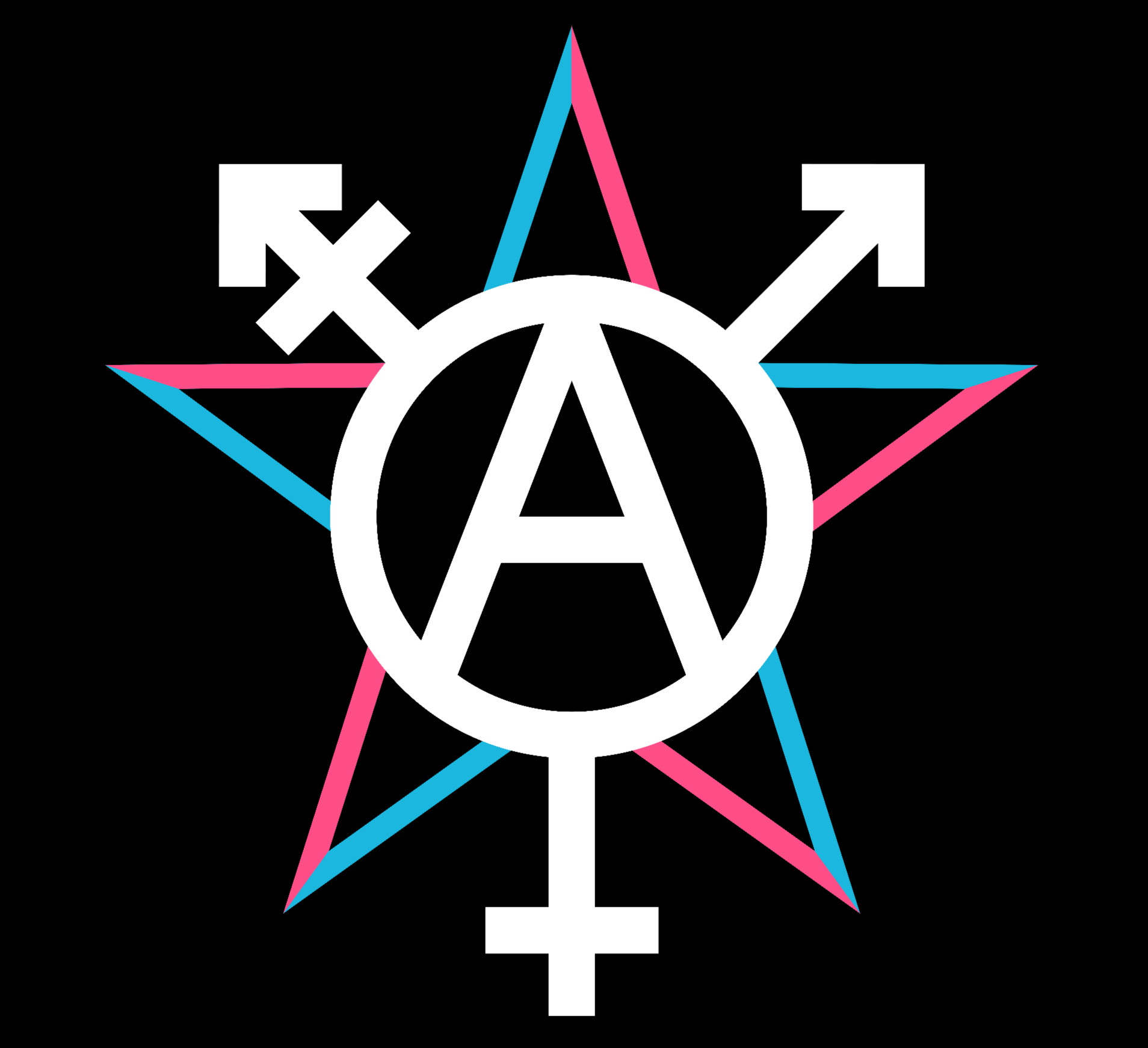English is a creole gone feral.
Some poor sheep farmers who thought the Thames was a lovely bit of river spent one thousand years getting rolled by the Picts, the Romans, the Angles, the Normans, the Saxons, the Franks, the Danes… and half of those were just the French wearing different hats. All of these conquerors, heirs, and particularly rowdy tourists left a significant linguistic impact on this mongrel archipelago of mayonnaise-filled peasants.

“The shower drain of languages.” That seems an apt description.
Some people call it a melting pot. I call it a public toilet.
When used to be ok with the fact that things do, in fact, change that’s ok. When used as an excuse to not try that’s a quick way to tower of babbel ourselves simply because there are way too many people who see multiplication in school and ask, unironically, when they’ll ever need it. It’s like people are allergic to having the barest amount of intelligence or putting in the slightest amount of effort.
English works like any language, it has to be at least vaguely consistent to work.
Bullshit
Bullsh t
Bullshit
bllsht
Pretentious in the opposite direction, though maybe that’s to be expected coming from someone trained in Latin grammar but not linguistics.
English is just as intelligible as any other natural human language is, and all languages borrow (including Latin!). English stands out a bit for its high rate of borrowing compared to other languages, but, again, this behavior is completely normal and there are a number of languages with even higher rates of borrowings than English has.
there are a number of languages with even higher rates of borrowings than English has.
Out of curiosity, what are some examples?
A few notable examples that come to mind are Armenian (>90% borrowings from being ruled by speakers of multiple Iranian languages for over 1,000 years, to the point that it was even classified as Iranian until it was finally proven to be its own branch of Indo-European) and Romani, which has borrowings from tons of different languages and families. Lots of East Asian languages have tons of borrowings from Chinese, but they don’t often quite reach the percentages of English (>75% borrowings).
Interesting, thanks!
All of them. Youd be shocked how many languages dont have a word for “privacy”. They have words that are close, or represent part of the meaning, but not the whole meaning. So require a separate word to complete the meaning.
French has Vie privee “Private Life”.
German has Privatesphare “Private Sphere”.
Spanish has Privacidad which is pretty close, but also seen as a loaned word.
Italians just straight up took the English word “privacy”.
Russian has Chastnaya Zhizn “Private life”
Japan has Puraibashi, again borrowed, they have no direct translation.
China has Yinsi “Hidden Personal Matters”
Arabic has Khususiyyah “Specialness” or “Particularity” which has been adapted to mean privacy in modern use.
The English idea of privacy, combining physical space, personal autonomy, and freedom from intrusion, is relatively culturally distinct.
puraibashi is one hell of a cognate
I’ve always said that English isn’t a language, it’s three languages in a trench coat stabbing and robbing other languages in a seedy back alley, rifling through their pockets for words and loose grammar.
English is the British Museum of languages
The artefacts in the British Museum invaded Britain and forced themselves onto them? Crazy, I always thought they stole them.
I know it’s not what you meant and you’re talking about the Anglo-Saxon, Norman, and Norse invasions, but this could come off more like xenophobic BNP / Reform UK type rhetoric
Saying the British museum stole its artefacts is a xenophobic BNP / Reform UK talking point?
No, but Britain being invaded by non-English speaking foreigners who are forcing their way of life onto proper Brits is. Again, I understand the point you were making, but I think others interpreted it differently and as something xenophobic because it mirrors that rhetoric, just while describing lesser discussed actual historical invasions rather than more topical current events. Hopefully that makes some sense, rather than just making everything mor confusing.
Bruh
Bruh.
English the language is the result of multiple invasions into England. It’s literally the opposite example of the British Museum.
There are lots of languages like this tbh
English speakers just say this because it’s the main language they’re familiar with
What language doesn’t match this description? People keep saying this like english is more built out of other languages than the others and, like, how do you think other languages are made? Do you expect someone to just suddenly come up with “anireslurp” for “table” and everyone in the country just uses it?
While loanwords are probably a thing in any language, there are definitely languages that seem to be a bit stricter with grammar, I think? I’d say German is an example.
Japanese is crazy with loanwords though. They steal them and if that’s not enough they put the japanizing bean on it, so air conditioning becomes エアコン (romanization of that word again is eakon)
German has more rules with cases and whatnot but a lot of that is ignored in day to day speech, especially in certain sociolects. Similarly the syntax of German sometimes gets slightly altered in spoken German.
It’s not that loanwords are a thing in all languages, it’s that they are everything. A non-loanword would be a word without a historical etymology. There are some in physics, and everyone is laughing at them “quarks”
Some languages or populations may be stricter with their grammars, but I guarantee you they stole that grammar. A few things changed over time of course, but it’s going to be very similar to how they talked before, mixed with how other people around them talked. You can’t just make up new grammar and hope people will understand it (see attached Lojban)
I love how Japan just uses the first two or three syllables and stops there with loanwords. “First Kitchen” becoming “Fakkin” has got to be my favorite.
You’ll have to define what you mean by “stricter with grammar” here - speakers of all languages make grammaticality judgments equally easily. What about German grammar makes it “stricter” than English?
I’m not really sure. It feels stricter, or maybe more precise because there are more grammatical rules like the four cases for Nomen and such.
The Japanese word for television is television.
I think it’s テレビ(terebi) but that’s probably what you meant.
I don’t think English is interested in adding additional grammar.
You can mar all the gram you want in English.
I just cringe that this comment is always the one being made whenever monolingual native English speakers gather together to talk about their language.
Not sure why you’re being downvoted here. This absolutely is the go-to quote for monolingual English-speaking laypeople who think that English is “exceptional” in some way - whether that be “bad” or “good” - when in reality English is a pretty unremarkable language overall.
It does have a few mildly interesting idiosyncrasies, but “polysemy” and “having loanwords” (even “having a large percentage of loanwords”) are not really among them.
English could use some spelling rules though, that shit is a joke.
Every effort to unfuck English spelling becomes another set of exceptions.
Ghoti 🐠
It needs a RECHTSCHREIBREFORM (spelling reform).
We don’t need spelling rules, we need a new alphabet. See the Shavian alphabet. It’d be like the English equivalent of Hangul.
A quick reminder: our alphabet isn’t English, it’s Latin. The letters were only ever meant to represent sounds in Latin and were retrofitted onto the English language (which is why it sucks so much).
Even if we were to adopt something like the Shavian alphabet, it would only work for a few generations at most until sound change and dialect divergence built up enough to once again strongly divorce spelling from pronunciation. Not to mention the fact that it’s impossible to come up with a phonetic alphabet that accounts in a useful way for dialect differences, even just in American English.
This has already happened with hangul - spellings that were once phonetic (though, again, in only certain dialects) have now become conventional due to sound change.
So, you’d end up having to either completely replace the alphabet again every hundred or so years, or you’d be right back where we currently are. Plus, interventions into the spelling system will a) make older publications harder to read without mass-translating them all into the new systems every few decades and b) will create reading difficulties for the generations that end up having to switch with each new update.
Not to mention spelling things the way we currently do (imperfectly) preserves etymological information about the words in question.
Not to say our current system is perfect, but rather that any such system is arbitrary, and will eventually become conventionalized either way without active, persistent intervention.
Shavian is built different. It’s not phonetic, it’s phonemic. Drifts in pronunciation occur along phonemic “fault lines” meaning that the spellings will be evergreen. Additionally it means it accounts for differences in regional pronunciation without spelling needing to be modified.
That assumes that phonemic splits and mergers never happen, or that different dialects don’t undergo contradictory sound changes. It’s already the case that different dialects have different numbers of phonemes (see the Mary/merry/marry distinctions, for example).
It’s not possible to design an “evergreen” writing system for any natural human language. Either you have to give up the benefits of standardization synchronically in order for different dialects to be equally expressible, or you have to give them up diachronically to account for language change, or both.
i just want to have a great vowel movement again
Ah, I see. When I learned about this the source made it seem like the lines between phonemes were unchanging but if that’s not the case then it’s not as solid as I thought. That being said it’s still more stable than a phonetic alphabet would be, correct?
Yes, it would be significantly more stable than a phonetic system. Depending on how you measured it, phonetic systems would likely last around a generation at most, but phonemic systems might last for upwards of a century before they become conventionalized enough to no longer be a near-1-1 match for the ‘Standard’ dialect (again, depending on how you measured it).
It’s worth noting that English’s current orthography is already mostly phonemic though (that is, it’s a combination of multiple different systems which are themselves mostly phonemic), and that the vast majority of the world’s alphabetic or syllabic writing systems are phonemic, not phonetic.
This is straightforwardly demonstrable in English by the use of, for example, the letter “t” for a wide variety of different consonant sounds in the same dialects: unaspirated and aspirated [t] (stop vs. top), released vs. unreleased [t] (stop vs. bit), glottal stop (batman), flap (butter), glottalized [t] (caught), etc.
Phonetic writing systems are very rare, because native speakers of a language are practically always unaware of their language’s sub-phonemic distinctions. Virtually no American English speakers, for example, are aware that they pronounce the “t” in top and stop differently.
So, replacing current English orthography wouldn’t even be “switching to a phonemic system”. English already uses a phonemic writing system - you’d just be switching to a different phonemic writing system (though, admittedly, one that has fewer subregularities/“inconsistencies” (for now)).
Other Germanic languages use the Latin alphabet and have much more consistent spelling.
if we’re changing alphabet sets why not just use IPA?
Because IPA is phonetic, meaning a US Midwesterner and Londoner would spell the same word differently.
isn’t the point of this new alphabet to standardize pronunciations tho
No, it’s to standardize spellings, because spelling in English is dogshit.
i’m confused. aren’t the standardized spellings based phonetically off of a specific dialect? in which case, it does both?
Since English spelling isn’t phonetic, what you’re saying isn’t even possible, so no. Just to be clear, the word phonetic is doing a lot of heavy lifting here and it very specifically means the spelling produces perfectly unambiguous pronunciation which, as far as I know, has never been the case for English with the Latin alphabet. And if you think about it, that makes sense. You are using symbols from a completely different language to describe the sounds - there is zero guarantee there are enough symbols to describe all of the sounds unambiguously. You might be able to get there in combination (see “ch”, one of our most stable letter combinations), but as soon as you do that, readers can no longer intuit what the sound should be. For example, for “ch” the sound for “c” (which is itself already ambiguous) plus the sound for “h” does not “make” the “ch” sound. Instead you’d get either “kuh” like in cousin or “sh” as in shush.
It could start by following rules
It does follow rules! It’s just that every word has its own rules.
And every rule has an exception or 12.
i before e except after c!
(many, MANY conditions apply)
that’s what i love about german. ie and ei are completely different sounds
It’s what I love about English. France is over there passing laws to keep their language pure, while English speakers are picking up bits of greasy string from the gutter to see if they can fit it in a sentence.
I think it’s important to be aware that there’s the academy on one hand, which is made up of wrinkly old bourgeois men (and some women), and the french people on the other, who are, much like the english, a patchwork of ethnicities and accents that’s ever-evolving. France is a combination of several historical regions with their own language (Breton, Occitan, Provençal, Alsacien, Normand, Catalan, Basque, etc.), and that’s not counting all the languages brought by immigrants from the former colonies, that infuse contemporary french with some of their own words. The academy is completely at odds with reality.
I believe he is confusing France for Quebec. Quebec is very puritanical about the language and has laws preventing the use of other languages before French in advertisements, signage, and many other things. To the point where businesses are forced to change their logos and emtrance signs in Quebec only and hobby shops got in trouble since the packaging on niche honny items had English packaging before the French.
Yes.
I’m all for using it to the best of your ability in order to try ensuring that you’re communicating what you mean to, but one must recognize and accept that all languages are fluid and evolve over time. Pedantry done in an attempt to be helpful (i.e. educating someone who may not understand the issue) is fine - something I would encourage, even. Pedantry done in condescension is not only not helpful, but the resentment it can create is actually counterproductive.
How will I display my superiority?
By dropping trow?
Eh em.
“They’re”
/s
I’m thoroughly lost. Where did I use any variation of that?
While I’m here, you’ve reminded me of another issue: I use the “swipe/glide” typing feature on Android all the time, and it routinely screws things like that up. Yet another reason to not be too critical since the person may know the correct usage, but didn’t notice the technology fail.
It was a joke. I purposely picked a word you didn’t use and made a common grammar correction comment.
I was being pedantic is a sarcastic way.
I use the “swipe/glide” typing feature on Android all the time, and it routinely screws things like that up.
Story of my life. They’re and their, your and you’re, don’t and didn’t for some reason.
/s
Yep! You see it sometimes on lemmy, it’s public corrections clearly done to be nasty
comma splice.
(I use them constantly)
I think it’s a holdover from redditors. You’d see that kinda shit all the time over there, someone being pedantic for no other reason than to try and score internet points. from my experience, it’s mostly something I see from .worlders.
Yep there’s a lot of nastiness on reddit. I don’t miss it at all
Although I agree, the period where a comma should be is still driving me crazy. But to be fair, punctuation marks aren’t words, therefore I can still be pedantic.
Pretentious. You can be stodgy, but not wildly so.
Within a reasonable degree of willingness to adapt to each other, yeah.
But in n the absence of basic sense, we gotta go to a dictionary and accept what’s there to end the issue without homicide.
Grammar is an attempt by people in cardigans to make sense of language as it’s actually being used. It shouldn’t be overrated.
Neither entrepreneur or schadenfreude are English words.
If a monolingual English speaker understands you, then you are speaking English. That is my definition for whether a word belongs to a certain language.
Of course they are. The fact that they originated in other languages is irrelevant, since the vast majority of English words have as well.
ROFL… so, that they originated in other counties is of no matter! They’re English now!!
Never change lemmy.
That’s why he said “the shower-drain of languages”. It’s how English got so rich, by accepting words from wherever into it. It’s like a petri-dish that everyone spits into: wonderfully varied and complex, but not very sanitary.
Edit: dunno why I wrote shower curtain
I remember reading something about when Asterix (a French comic that loves puns) was translated into English, they had to find equivalent puns since most don’t translate. “Fortunately, English is arguably the lexicon for puns.” Being a hodgepodge of other languages is a big part of that.
Quite literally, yes. They are also French, German, etc. words in other languages. A word’s origin does not determine what language it is, the language using it does.
That’s literally how languages work. They don’t spring whole cloth from an originator country, they evolve from older languages and are often influenced by other cultures.
Removed by mod
Removed by mod
Removed by mod
Wait, are you for real?
No.
Ooh, this is a fun game.
Ok, how about “tea”? Is that an English word?
How about “chef”? If not, then how about “chief”?
“Dexterity”?
“History”?
“Anger?” “Egg?” “Justice?”
What about “circle”, “cheese”, and “wine”?
Do they count as English if the borrowing predates English? “Sand” and “tin”? “Silver”?
What about if they really predate English like “ox”?
JFC…… The irony. In answer to OP’s question, I’m going to go with……
pretentious.
Says the one trying to “um, ackshually” entrepreneur and schadenfreude out of being English words.
Just take the L, my dude or dudette. You’ll get 'em next time.
They’re not English words. lol!
The word “schadenfreude” is a German term that literally translates to “harm-joy.” Know what the English word for “harm-Joy” is? It’s HARM JOY. But that sounds ridiculous. So we use schadenfreude.
The term “entrepreneur” comes from the French word entreprendre, meaning "to undertake”
Wanna know what we don’t use the term “undertaker” in place of entrepreneur?
These aren’t English words just because English people use them. For fuck’s sake. I would never have thought something this fundamentally basic would require an explanation.
That’s why I never order an omelette at my diner. I just say “egg pancake” because they might not speak French.
You’re really dying on a stupid hill, more power to you
So by your logic, all Japanese is English if it’s an English person speaking it.
Talk about a stupid hill….
By my logic an English speaker will know what omelette means, they’d be confused if you ordered it with un jus d’orange, s’il vous plaît.
Something like 25-30% of English is native Anglo-Saxon and the rest is borrowed or adapted. By your logic, English doesn’t exist.
So answer my original question then. You know, the one that you dodged while calling me pretentious. Are the words I listed here English, or are they not?
We’re not talking about those words, I don’t play whataboutism, and this a fucking stupid argument.
As I said to someone else,
Apparently all Japanese is English if an English person is speaking it.
Apparently all Japanese is English if an English person is speaking it.
coming immediately after
We’re not talking about those words, I don’t play whataboutism.
Whatever you say bruh.
But fine, we won’t refer to any other loanwords. Instead, I’ll ask you to generalize whatever your position is: that is, can you provide a consistent definition of “English word” that will include what you consider to be English words and exclude “entrepreneur” and “schadenfreude” and any other words that you don’t think are English?
Apparently all Japanese is English if an English person is speaking it.
The linguistic explanation for what you’re getting hung up on here is pretty straightforward (though whether you accept it or not remains to be seen), but I’ll save it for later in the conversation to keep our discussion on topic in the meantime.
Absorbing foreign words has been happening since forever in English. Example: Mirror is an English word, right? No, it’s a loan word from French, introduced after the Norman conquest in 1066. The English word is “looking-glass”.
Don’t have a cow (English), what’s your beef (French)?
You’re taking about absorbing. I’M NOT. I never was. You all are manufacturing a different argument for that smug satisfaction of amassing worthless internet points.
I have no shits to give about them or any of you! Lol. So do go on, feverishly pecking away paragraphs of rebuttals without ever considering that you all missed the fucking point entirely.
You go on and have the argument you wanted. You seem well versed in telling me what I’m saying, and I have better things to do than to constantly explain to you all that you’re creating an argument where there isn’t one.
bain sult as an gcaisleán a ionsaí!
(That’s English for “have fun storming the castle!” if you didn’t recognize it) 😂
you all missed the fucking point entirely
So what is your point then?
Irony - from the latin ironia and greek eironeia
Answer - from old nord ansvar
Question - latin quaesto
Pretentious - latin praetendere
Are these all not English words?
Cada quien sus gustos!
That’s English for whatever floats your boat. But you probably knew that.



















